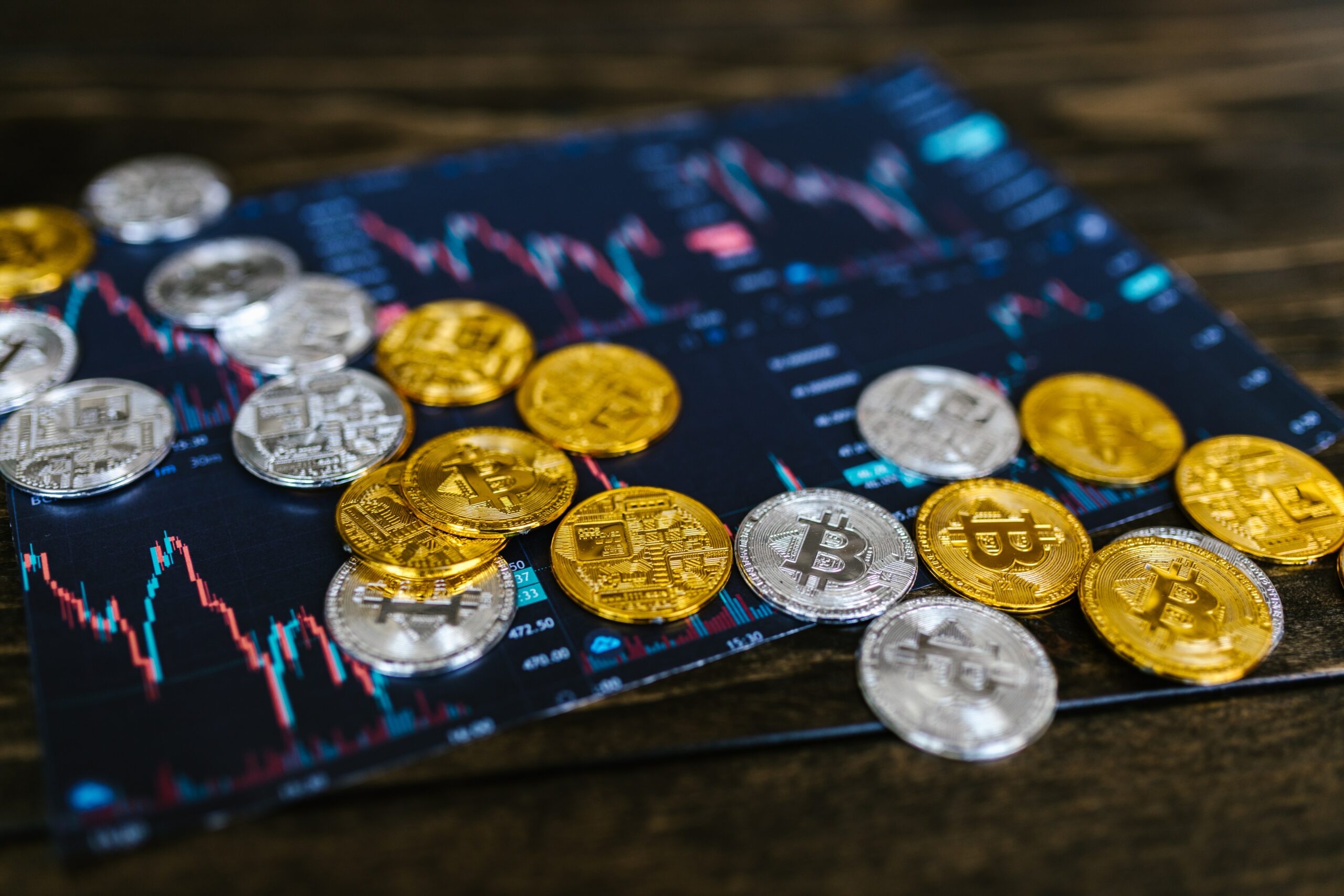Gold and Silver Trading in India
Gold and silver trading in India is a centuries-old tradition that has been a major part of the country’s economy for many years. India is one of the world’s largest consumers of gold and silver, and the country’s gold and silver markets are among the most active in the world. Gold and silver trading in India is a complex and dynamic process, with a variety of factors influencing the prices of these precious metals.
In this article, we will explore the history, the current state of the market, and the various factors that affect the prices of these metals. We will also discuss the various ways in which investors can participate in gold and silver trading in India.


AVATrade
Min $250
Free Demo
Social trading, MT4
AVA Trade Review
How to Get Started
Investing in gold and silver is a great way to diversify your portfolio and hedge against market volatility. With the right knowledge and resources, trading gold and silver in India can be a lucrative and rewarding endeavor. Here are some tips to get you started.
- Research the Market: Before you start trading gold and silver, it is important to understand the market. Research the current prices of gold and silver, as well as the factors that influence their prices. This will help you make informed decisions when trading.
- Choose a Trading Platform: There are several online trading platforms available in India. Choose one that offers low fees, a wide range of products, and reliable customer service.
- Open an Account: Once you have chosen a trading platform, you will need to open an account. You will need to provide personal information, such as your name, address, and contact details. You will also need to provide proof of identity and proof of address.
- Fund Your Account: Once your account is open, you will need to fund it. You can do this by transferring money from your bank account or by using a debit or credit card.
- Start Trading: Once your account is funded, you can start trading gold and silver. You can buy and sell gold and silver coins, bars, and ETFs. You can also trade futures and options contracts.
- Monitor Your Trades: It is important to monitor your trades and keep track of your profits and losses. This will help you make informed decisions and maximize your profits.
By following these steps, you can get started trading gold and silver in India. With the right knowledge and resources, you can make informed decisions and maximize your profits.
Tax Implications of Gold and Silver Trading in India
The trading of gold and silver in India is subject to various taxes, depending on the type of transaction. It is important for investors to understand the tax implications of trading in these precious metals in order to make informed decisions.
In India, gold and silver are subject to Value Added Tax (VAT) at the rate of 1%. This tax is applicable on the purchase of gold and silver in the form of coins, bars, and jewelry. In addition, the sale of gold and silver is subject to capital gains tax. Short-term capital gains tax is applicable on the sale of gold and silver within three years of purchase, and long-term capital gains tax is applicable on the sale of gold and silver after three years of purchase.
In addition, gold and silver are subject to Securities Transaction Tax (STT). This tax is applicable on the sale of gold and silver futures and options contracts. The rate of STT is 0.01% of the total value of the transaction.
Finally, gold and silver are subject to Goods and Services Tax (GST). This tax is applicable on the sale of gold and silver in the form of coins, bars, and jewelry. The rate of GST is 3%.
How to Invest in Gold and Silver in India
In India, there are several ways to invest in gold and silver.
Physical Gold and Silver
-
You can do this by purchasing coins, bars, jewelry, and other forms of bullion. Banks, jewelers, and other authorized dealers sell physical gold and silver. However, it is important to note that taxes and other charges apply to physical gold and silver.
ETFs (Exchange Traded Funds)
-
ETFs track the price of gold and silver and individuals can buy and sell them on the stock exchange. Investing in gold and silver through ETFs is convenient because they are easy to buy and sell and do not incur taxes or other charges.
Mutual Funds
- These are funds that invest in gold and silver mining companies and other related businesses. Mutual funds are a good way to diversify one’s portfolio and benefit from the potential growth of the gold and silver industry.
Futures Contracts
- These are contracts that allow investors to buy or sell gold and silver at a predetermined price at a future date. Futures contracts are a good way to speculate on the price of gold and silver, but they are also risky and should only be used by experienced investors.
In conclusion, there are several ways to invest in gold and silver in India. It is important to understand the risks and rewards associated with each option before making an investment.
The Benefits & Risks of Investing in Gold and Silver in India
Benefits
Many investors in India choose to invest in gold and silver. People have been using gold and silver as currency for centuries, and investors consider them as a safe haven during times of economic uncertainty. They also view gold and silver as a hedge against inflation, as their prices increase when the value of the rupee decreases.
Investing in gold and silver in India offers many benefits. Their prices tend to remain stable even when the stock market is volatile, making them a secure investment. Additionally, they serve as a hedge against currency devaluation, as their prices remain stable even when the rupee’s value decreases.
Risks
Gold and silver trading in India also carries some risks. If investors are unable to accurately predict the market direction, they may suffer losses due to the volatile prices of these precious metals. Global events such as political unrest and economic downturns can also affect gold and silver prices.
Besides, taxes and other fees can reduce the return on investment. Although investing in gold and silver can be profitable, investors must research the market and understand the associated risks. It is crucial to be prepared to accept losses as gold and silver prices can be volatile.
How to Trade Gold & Silver Successfully in India
Trading gold and silver can be a profitable venture if done correctly. Here are some tips on how to trade gold and silver successfully:
1. Understand the market: Before you start trading gold and silver, it is important to understand the market. Keep up-to-date with the latest news and events that could affect the prices of these metals.
2. Choose a trading strategy: There are many different trading strategies to choose from when trading gold and silver. Some traders prefer to use technical analysis, while others prefer to use a fundamental approach. Find the strategy that works best for you.
3. Use stop-loss orders: Stop-loss orders are a great way to limit your losses if the market turns against you. These orders will automatically sell your position if the price falls below a certain level.
4. Diversify your portfolio: It is important to diversify your portfolio when trading gold and silver. This means investing in other assets like stocks, bonds, and currencies, which can help to reduce your overall risk.
5. Pay attention to leverage: When trading gold and silver, leverage can be a double-edged sword. While it can increase your profits, it can also lead to large losses if the market turns against you. Be sure to use leverage wisely.
6. Choose a reliable broker: Choosing a reliable broker is essential when trading gold and silver. Look for a broker that is regulated, has a good reputation, and offers competitive spreads.
7. Keep emotions in check: Emotions can often cloud your judgment when trading gold and silver. It is important to keep your emotions in check and stick to your trading plan.
By following these tips, you can increase your chances of trading gold and silver successfully. Remember, trading is never risk-free, so always be prepared for potential losses.
Is Gold and Silver Trading Legal in India?
Yes, gold and silver trading is legal in India. The Indian government has allowed trading in gold and silver through the Commodity Exchange of India (MCX) and the National Commodity and Derivatives Exchange (NCDEX).
The Forward Markets Commission (FMC), a statutory body established by the Government of India, regulates the trading of gold and silver. The FMC ensures that the commodity exchanges conduct trading in a fair and transparent manner. Traders have the option to buy and sell gold and silver through the MCX and NCDEX, which provide a platform for trading futures contracts in standardized lots.
The demand and supply in the market determine the price of gold and silver. Additionally, traders can buy and sell gold and silver through the spot market, which is an over-the-counter market with prevailing market prices. Investing in gold and silver trading is a risky venture and traders should be aware of the risks involved. It is crucial to understand the market and the factors that affect the price of gold and silver and to consult a financial advisor before investing.
Conclusion
For centuries, people in India have engaged in the lucrative business of trading gold and silver. Investing in precious metals through various methods is a safe and secure way to make money. With proper knowledge and guidance, investors can make informed decisions and reap the benefits of this market. The Indian government has regulated and secured the gold and silver trading market. By following effective strategies and receiving guidance, investors can optimize their investments in gold and silver trading in India.
Check out here what other commodities you can trade in India.



